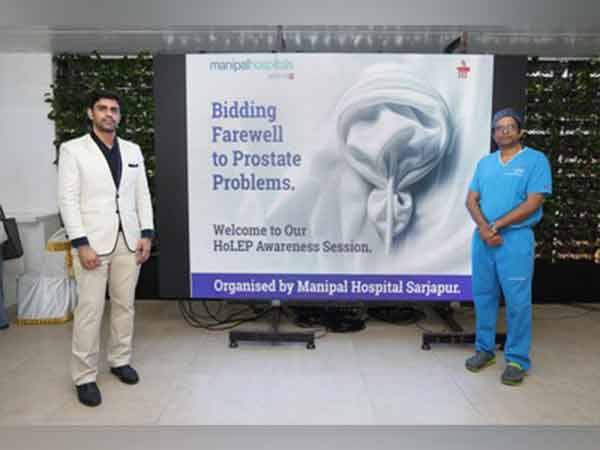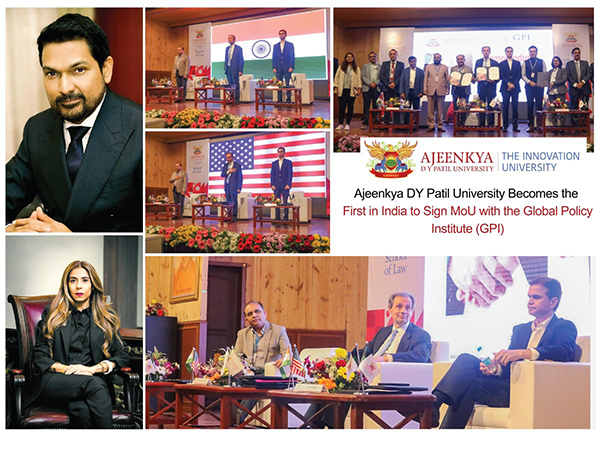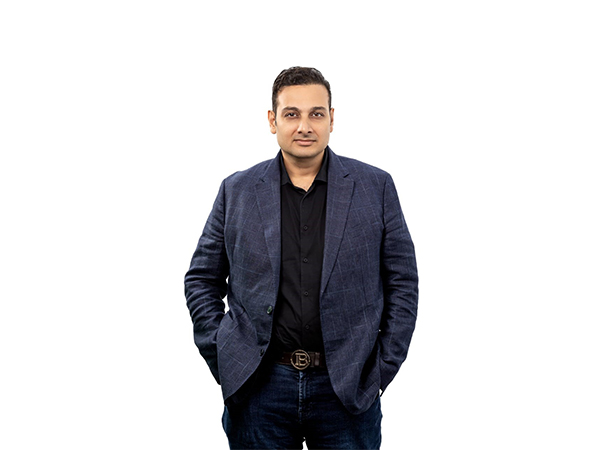Sultan Bin Ahmed approves strategic plan, budget for University of Sharjah
Jun 06, 2024
Sharjah [UAE], June 6: H.H. Sheikh Sultan bin Ahmed bin Sultan Al Qasimi, Deputy Ruler of Sharjah and President of the University of Sharjah, praised the prestigious status the university has achieved both locally, regionally, and internationally. He noted that this reflects the unlimited support and significant efforts dedicated to developing the university in all fields.
This was stated during his chairmanship of the 57th meeting of the University's Board of Trustees, held on Wednesday morning at his office at the university. He welcomed the members of the board and appreciated their efforts in contributing to the university's progress and development.
Sultan bin Ahmed added that the University of Sharjah is now among the best universities worldwide according to various rankings, including the Times Higher Education ranking, the QS ranking, and the Shanghai Global Ranking of Academic Subjects in clinical specialties. It also leads the nation in the number of published research papers and citations in global databases.
The board approved the university's budget for the academic year 2024/2025, amounting to 1.171 billion dirhams. The board also approved the graduation of 1,865 students who completed their requirements in the spring semester of 2023/2024, including 56 doctoral graduates, 294 master's graduates, 18 postgraduate diploma graduates, and 1,497 bachelor's degree graduates.
The board approved the establishment of several specialized centers: the "Sharjah Smart Centre for Weather and Climate Change Risk Management," the "Water and Environmental Conservation Research Centre," and the "Sharjah Centre for Public Opinion Polls." They also introduced a new academic title, Emeritus Professor.
The board approved the recommendations of the subcommittees, which included reports from the financial, academic, compliance and internal audit, and localization committees. The board also approved the university's strategic plan for 2024-2030, focusing on further localization of administrative and academic jobs, increasing the number of master's and doctoral degree holders starting in September 2024, and attracting distinguished scholars and researchers. The plan includes a new initiative called "National Scholars" to enroll outstanding Emirati bachelor's degree holders, aiming to have over 500 scientists in various fields by 2050.
The board approved the promotion of 24 faculty members, 11 to the rank of Professor and 13 to the rank of Associate Professor. The board also approved the initiation of academic accreditation procedures for several new programs, including a PhD in Diabetes and Obesity, a Master of Science in Building Engineering, a Master of Science in Financial Technology, a Master of Science in Pharmaceutical Practices, and a Master of Science in Mathematics for Machine Learning and Artificial Intelligence.
The board reviewed a report from Dr. Hamid Majoul Al Nuaimi, Chancellor of the University of Sharjah, on the university's performance and achievements in previous academic years. The report highlighted the university's success in meeting most performance indicators and preparing for the upcoming strategic plan for 2024-2030, based on assessment results and emerging opportunities and challenges.
The report indicated that the strategic plan (2024 - 2030) focuses on significantly increasing the localization of academic and administrative positions, developing and enhancing the skills of Emirati staff, doubling the number of Emirati academic researchers, and providing more training opportunities. The plan also aims to elevate the university's ranking to be among the top 200 universities globally, strengthen research collaboration opportunities with the industrial sector in the country, emphasize impactful and applied research that benefits the Sharjah community and the broader UAE, achieve comprehensive digital transformation, integrate advanced technologies, continue offering interdisciplinary programs, and maintain engagement and communication with alumni.
The report on the university's research performance highlighted that it offers the largest number of academic programs in the country, with 75% of them having received international accreditation from prestigious accreditation bodies. The university offers 130 programs, more than half of which are for doctoral and master's degrees covering a wide range of disciplines, in addition to 28 programs that are currently being developed and seeking academic accreditation.
The report also detailed the university's procedures for reviewing and updating programs and courses to align with the skills and competencies required by the business and industrial sectors. The University of Sharjah plays an active role in supporting the strategic plans of the state and the initiatives of the Ministry of Education, such as achieving educational competencies and skills and promoting student exchange.
Additionally, the report included efforts to develop and upgrade the university's infrastructure, learning resources, information technology, laboratories, classrooms, student services, and cooperation agreements with universities and organisations locally, regionally, and globally.
Attendees of the University's Board of Trustees meeting included Afaf Ibrahim Al Marri, Chairperson of the Sharjah Social Services Department; Dr. Khawla Abdul Rahman Al Mulla, Chairperson of the Family Affairs Authority; Dr. Mansour Mohammed bin Nassar, Chairman of the Legal Department of the Government of Sharjah; Engineer Omar bin Huraimel Al Shamsi, Chairman of the Human Resources Department; Saeed Sultan Al Suwaidi, Chairman of the Sharjah Electricity, Water, and Gas Authority; Dr. Muhadditha Al Hashimi, Chairperson of the Sharjah Private Education Authority; Mohammed Abdullah, CEO of Sharjah Islamic Bank; Dr. Hamid Majoul Al Nuaimi, Chancellor of the University of Sharjah and President of the Arab Union for Astronomy and Space Sciences; Dr. Obaid bin Butti Al Muhairi, former Executive Dean of Arabic Language and Emirati Studies at the Higher Colleges of Technology; Dr. Jacques Fremont, President of the University of Ottawa in Canada; Dr. Alexander Kuleshov, President of Skolkovo Institute of Science and Technology in Russia; Dr. Mohd Hamdi Abd Shukor, Vice Chancellor of the University of Malaya in Malaysia; Dr. Paul O'Byrne, Vice President of McMaster University in Canada; Dr. Martin Barstow, Pro-Vice-Chancellor for Strategic Science Projects and Director of the Leicester Institute for Space and Earth Observation in the UK; Dr. Kamal Youcef-Toumi, Professor of Mechanical Engineering and Co-Director of the Centre for Clean Water and Clean Energy at MIT in the USA; and Dr. Oussama Khatib, Professor of Computer Science and Electrical Engineering and Director of the Stanford Robotics Lab at Stanford University in the USA.
Source: Emirates News Agency








